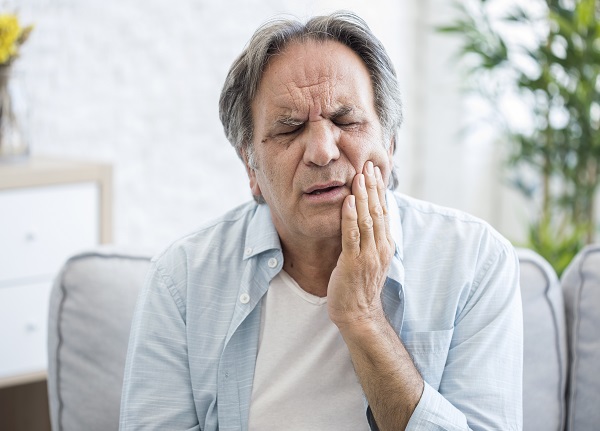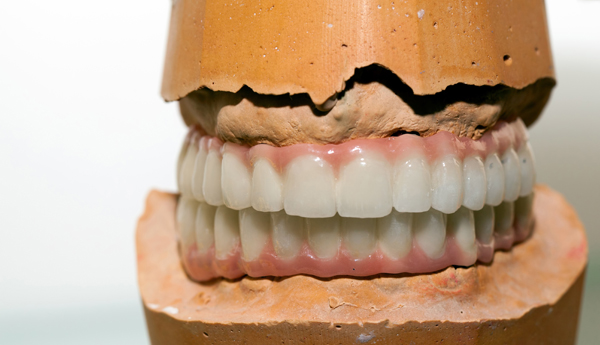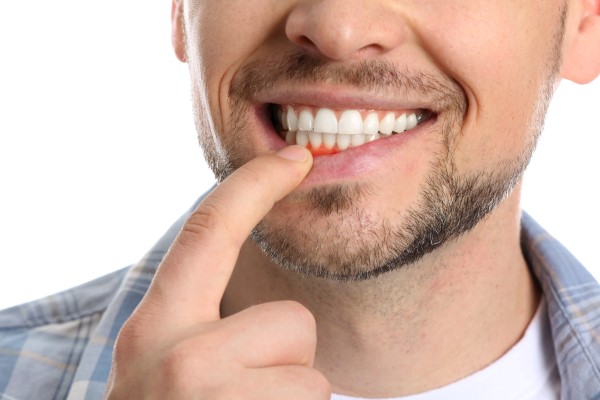What are Common Causes of TMJ?

TMJ refers to the temporomandibular joint, which often dysfunctions, resulting in serious pain. Individuals that suffer from TMJ disorder often turn to their general dentist to learn more about treatment options, as well as the root cause of the disorder. Each person varies, meaning the cause of their TMJ may differ, however, there are a few relatively common factors.m
TMJ treatment from a general dentist
Many are surprised to learn that general dentists can treat TMJ disorders, however, they are often the first contact when symptoms occur. General dentists undergo extensive training, which prepares them to diagnose and treat conditions that affect the facial area and the jaw.
What causes TMJ disorder?
According to MedicineNet.com, temporomandibular joint syndrome is a disorder of the jaw muscles and nerves caused by injury or inflammation to the joint. The list below includes three of the most common causes of TMJ disorder.
#1 – Teeth clenching, grinding
When individuals participate in the act of clenching or grinding their teeth, it is possible for them to eventually develop a problem with their jaw joints, leading to a TMJ disorder diagnosis. Constantly grinding or clenching the teeth places a lot of stress on the jaw, which can lead to any number of jaw-related problems. Patients who are diagnosed with TMJ due to bruxism need to find the reason why they clench or grind their teeth, with popular reasons including experiencing a great deal of stress and/or anxiety.
#2 – Jaw and/or teeth misalignments
When an individual's jaw and/or teeth are not in their proper alignment, they are likely to experience jaw joint problems. Two of the more common reasons why someone would experience a misalignment of their jaw include any type of injury or being born with a jaw-related birth defect. Misalignments in one’s teeth mean the teeth do not come together exactly as they are supposed to, which often results in an under or overbite. Both of these problems can lead to one being diagnosed with TMJ disorder.
#3 – Arthritis
Rheumatoid arthritis and osteoarthritis are two of the more common types of arthritis that can lead to someone being diagnosed with a TMJ-related disorder. This is because arthritis is known to damage the cartilage in the jaw joints. Additionally, the fact that arthritis causes various levels of inflammation and pain in the jaw area, makes it a real possibility for those living with arthritis to eventually be diagnosed with TMJ disorder, thus resulting pain.
In need of a diagnosis?
Thinking you may have TMJ after reading the above common causes? Those who think they may have this jaw disorder need to first be properly diagnosed, as treatment options depend on one’s particular situation. Since the causes of TMJ disorder are now understood, it is best to consult with a general dentist. An evaluation can be done to determine the appropriate course of treatment. Reach out today to get started!
Request an appointment here: http://www.drmccawley.com or call James R McCawley DDS at (615) 526-2497 for an appointment in our Murfreesboro office.
Check out what others are saying about our dental services on Yelp: TMJ Dentist in Murfreesboro, TN.
Recent Posts
TMJ disorder is an issue that affects many Americans each year. It leads to jaw pain, limited jaw movement and other symptoms. Dentists can diagnose, treat and prevent TMJ disorder through a variety of methods. It is helpful to understand how the diagnostic and treatment process works for TMJ to determine if you should visit…
Wondering if you have TMJ, also known as temporomandibular disorder? Whenever you are experiencing any type of dental-related problem, making an appointment with a dental professional as soon as possible is necessary. If you do not, then your dental problem will only continue to get worse until you do.Learning more about TMJ is a great…
Are you looking for more information about denture adhesives? When you need to wear dentures so you can achieve good oral health, it is important to understand everything there is to know about dentures, including proper denture care. Denture care also includes potentially wearing denture adhesives.According to the Food and Drug Administration, in most cases,…
Gum disease is not a condition you should ever ignore. At the first signs of trouble, you should talk to your dentist about how to treat these issues and restore your gums to good health. While the dentist can recommend in-office treatment, there are also things you can do on your own. Along with good…


